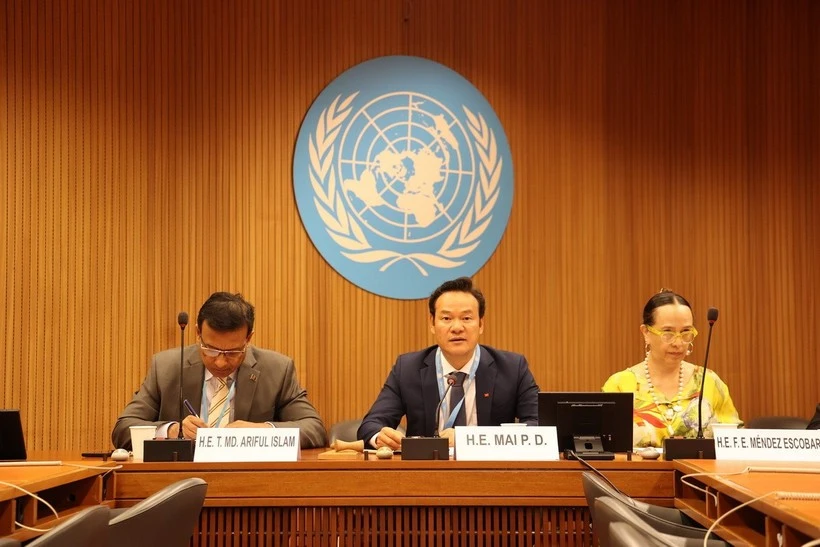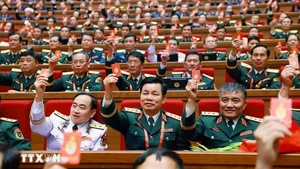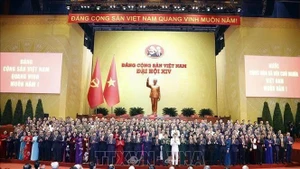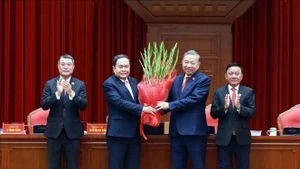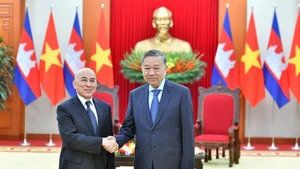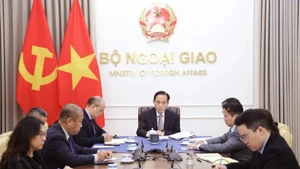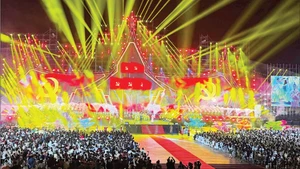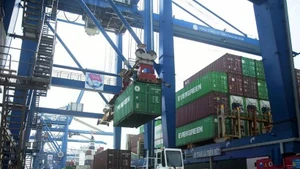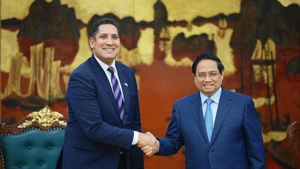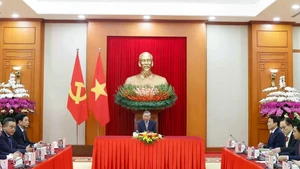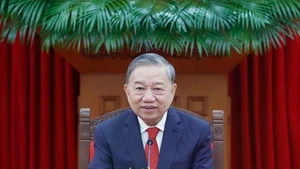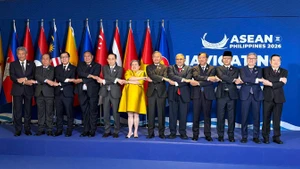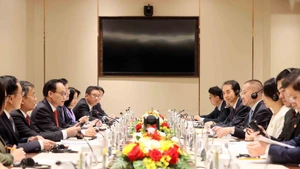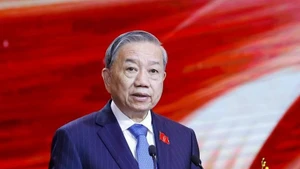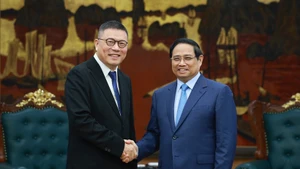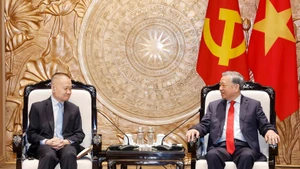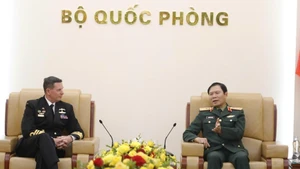Held from June 16 to July 8 in Geneva, the session saw broad participation from member states, intergovernmental bodies, and non-governmental organisations. It featured five thematic panel discussions, dialogues with 35 special procedures and UN human rights mechanisms, and extensive consultations on draft resolutions. In total, the council adopted 26 resolutions, appointed two new special procedure mandate holders, and approved fourth-cycle Universal Periodic Review (UPR) reports for 14 countries.
The Vietnamese delegation, led by Ambassador Mai Phan Dung, Permanent Representative of Viet Nam to the UN, WTO, and other international organisations in Geneva, actively engaged in the session.
On July 8, the council adopted by consensus two resolutions co-initiated and co-drafted by Viet Nam and partner countries.
The first, a resolution on climate change and human rights, with a focus on climate finance, had over 63 co-sponsoring countries as of the evening of July 8 (Geneva time). The resolution followed extensive consultations led by Bangladesh in collaboration with Viet Nam and the Philippines.
The second resolution, on strengthening international cooperation, technical assistance, and capacity-building to reinforce national frameworks for protecting and empowering children in cyberspace, was co-sponsored by over 87 countries by late July 8. It was jointly developed under the leadership of Saudi Arabia, along with Viet Nam, Algeria, Azerbaijan, Kuwait, and Pakistan.
Viet Nam has been an active member of the core group, alongside Bangladesh and the Philippines, responsible for the annual resolution on climate change and human rights at the UNHRC since 2008. This year’s theme, “Equitable and Effective Access to Climate Finance”, reaffirmed the link between climate change impacts and the enjoyment of human rights, stressing the importance of ensuring climate finance that offers tangible support to the nations most affected. Viet Nam’s role underscores its commitment to human rights protection amid climate challenges and reflects its proactive and responsible foreign policy towards global issues.
The second resolution highlights growing international concern over the risks children face in digital environments. Viet Nam’s strong involvement demonstrates its responsiveness to emerging and transboundary human rights issues. The resolution also reaffirmed the significance of the forthcoming UN Convention Against Cybercrime, due to open for signature in Hanoi on October 25–26. These actions reinforce Viet Nam’s role in shaping global human rights standards.
Viet Nam’s delegation contributed actively across numerous thematic discussions, including on climate change and human rights, human trafficking, extreme poverty, access to clean water and sanitation, business and human rights, and UPR report reviews of other nations. Alongside fellow ASEAN members, Viet Nam helped lead the drafting of ASEAN’s joint statement on just transition in the context of climate change.
As part of the session, Viet Nam held a photo exhibition titled “Viet Nam: Identity, Humanity, and Integration” at the UN headquarters in Geneva from June 30 to July 8. The exhibition attracted wide interest from the international community, showcasing striking images of Viet Nam’s socio-economic progress, its commitment to human rights, and its diverse cultural heritage. It served as a compelling example of cultural diplomacy and illustrated a modern and globally integrated Viet Nam.
Viet Nam also hosted a side event on transforming food systems to adapt to climate change and ensure the right to food, co-sponsored by Bangladesh, the Netherlands, and Mexico. Attended by over 50 international delegations and organisations, the event underlined Viet Nam’s leadership in advocating human rights, especially the right to food in the face of intensifying climate threats. Delegates praised Viet Nam’s food system transformation as a model worthy of expansion.
Throughout the 59th session of the UNHRC, Viet Nam’s delegation demonstrated a proactive, constructive, and responsible approach—engaging in dialogue, contributing to resolutions, and co-sponsoring major initiatives.
These efforts reflect Viet Nam’s consistent policy and steadfast commitment to promoting and protecting human rights, anchored in the UN Charter, international law, and global human rights norms.
Viet Nam has continued to affirm its credibility and position as a responsible and active member of the UNHRC for the 2023–2025 tenure. Its achievements during this session exemplify its commitment to dialogue, mutual understanding, and safeguarding human rights for all, thus laying strong groundwork for its candidacy for the 2026–2028 term and making more substantive contributions to common issues of the international community.
